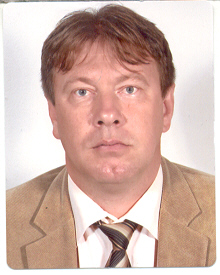Prof. Dr. Lóránt Dénes Dávid - MATE Research
Overview
Prof. Dr. Lóránt Dénes Dávid, academician, is a Hungarian scholar. After earning his PhD from the University of Debrecen, Hungary in Geography (Earth Sciences) in 2001, he completed the habilitation processes in 3 disciplines (Management and Business Administration, Environmental Sciences, and Regional Sciences. He has become an internationally recognized researcher and professor in the fields of geography and tourism, and holds full-professor positions in Poland, Kazakhstan, Slovakia, and Hungary.
Research keywords:
Publications
Tourism development
Gender Perspectives in Tourism Studies: A Comparative Bibliometric Analysis in the MENA Region
Green Human Resources Management in the Hotel Industry: A Systematic Review
Understanding the Complexity of Rural Tourism Business: Scholarly Perspective
Destination management
THE CONTRADICTIOUS EXPECTATIONS OF THE ACTORS OF THE TOURISM ORGANIZATIONAL AND CONSUMER MARKET IN SUSTAINABLE DESTINATION DEVELOPMENT
Systematic Literature Review Analysing Smart Tourism Destinations in Context of Sustainable Development: Current Applications and Future Directions
VIRTUAL TOUR AS A VIRTUAL EXPERIENCE OF DESTINATION MANAGEMENT ORGANISATIONS IN SLOVAKIA
Hospitality management
Promising European research results to improve hospitality in healthcare by eHealth
MICE Tourism: How the Pandemic Has Changed It
Green Human Resources Management in the Hotel Industry: A Systematic Review
Bibliometric analysis
Gender Perspectives in Tourism Studies: A Comparative Bibliometric Analysis in the MENA Region
Current trends in sustainable organization management: A bibliometric analysis
Mapping the Nexus between Sustainability and Digitalization in Tourist Destinations: A Bibliometric Analysis
Sustainable tourism
Sustainable Tourism in the Post-COVID-19 Era: Investigating the Effect of Green Practices on Hotels Attributes and Customer Preferences in Budapest, Hungary
Digital Technologies for Sustainable Tourism Destinations: State of the Art and Research Agenda
Minimizing seepage in irrigation canals in land reclamation systems via an innovative technology
Projects
Pivotal Issues of Water-Based Tourism
Studies on water-based tourism have recently gained consistent attention from scholars. Its development relies on water segmentation of areas that could potentially become a tourist attraction or even an alternative source of renewable energy. In short, the ideas of water-based tourism, as presented theoretically, conceptually, and practically by scholars, have been widespread; however, studies to map the core issues in the literature have not yet been undertaken. Therefore, this paper aims to analyze the progress of water-based tourism literature around the world. Furthermore, we used the scientometric and literature review approaches, along with the assistance of two qualitative applications, NVivo and VOSViewer, as tools for visualizing the code of 106 documents in Scopus.
Most relevant publication is available through the following link
Artificial intelligence in the tourism sector
At the moment, human life has been tied with emerging and disruptive technologies such as artificial intelligence (AI), Blockchain, the Internet of Things, the Metaverse, etc. In the future, it may seem complicated to live without these technologies, even though they may be strange to us now. As these technologies grow, it is necessary to understand the effect of them on our field of research and even on our life. AI is one of the technologies that could take attention in various areas and is the point of attention of the news.
Most relevant publication is available through the following link
Hotel management
Green supply chain management (GSCM) has proven itself to be pivotal, including in the hospitality and hotel industries. Additionally, organizations cannot become eco-friendly without applying GSCM. Applying GSCM is very complicated due to the complex nature of the management relations with stakeholders involved and needs appropriate support and collaboration from all related parties in order to accomplish the wanted management results. This paper aimed to analyze and study the complicated roles and relations of GSCM and the hotel industry, identifying the main barriers that might be faced in its application and trying to present the full picture in a simple and comprehensive way in order to provide decision-makers with a wider vision. This can then be used to take the best actions.
Most relevant publication is available through the following link
Smart tourism
During the past three years and with the spread of the pandemic, smartphones were the most important communication bridge between tourists and organizations; now more than ever, they are intertwined with the lives of tourists and destination management organizations. Although much research has been conducted in this field, the investigation of the effects of the pandemic on the technology and functionality of smartphones is one of the topics that has been less discussed. Therefore, the current research was conducted to determine the role of smartphones in tourism management dynamics during the pandemic.
Most relevant publication is available through the following link
Greening tourism
Green human resources management (GHRM) has proven its efficiency in many industries and services, including the hospitality and hostel industries. Additionally, applying green human resources management practices reflects an organization’s environmental awareness and responsibilities. Given that the adoption of these practices cannot be accomplished without the appropriate support from decision makers, the aim of this paper is to analyze the relationships between green human resources management and the hotel industry, identify the possible barriers they may face and provide decision makers with the ability to choose the appropriate combination of GHRM practices based on an understanding the full picture presented in this study.
Most relevant publication is available through the following link





